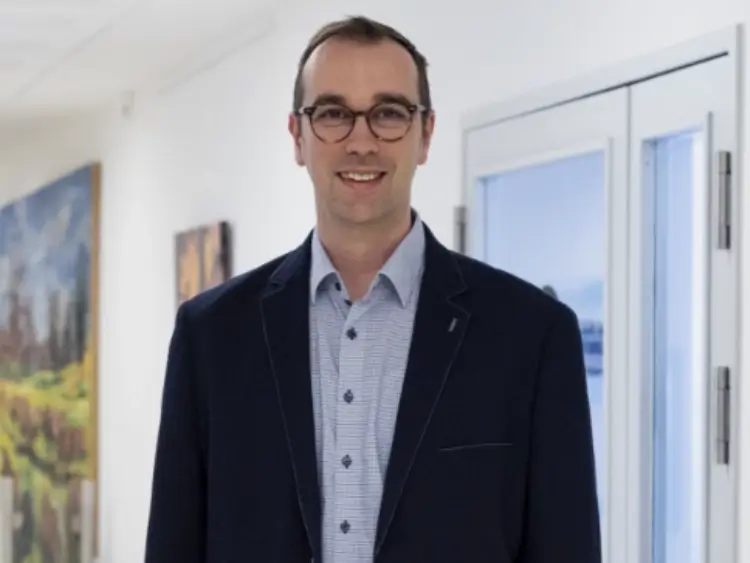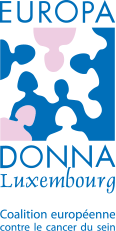Project 20 interviews
«Professionals speak about their daily work and their missions»
Interview with Dr Jodocy Daniel specialist in oncology and haematology.
Dr Daniel Jodocy, is specialized in internal medicine, oncology and haematology, and has been working at the Centre Hospitalier Emile Mayrisch (CHEM) in Esch/Alzette since 2017.
He explains, that the chosen breast cancer treatment depends on the biological state of the tumour and how advanced it is (size, lymphatic nodes if affected or not). For every breast cancer patient there are individual factors which determine the treatment: chemotherapy before surgery or not, surgery, radiotherapy and/or hormone therapy for 5 years.
Once all the data is collected from the biopsy, mammogram, ultrasound, the members of the multidisciplinary team come together to decide on what treatment to administer, relying on international guidelines.
Dr Jodocy, the oncologist, or the gynaecologist presents the case to the team. He then informs his colleagues about the details of the disease and suggests appropriate treatment.
If the team cannot rely on conventional criteria to make a decision, they have to do a multigene analysis: using a molecular technique they verify if a sequence of genes has mutated in the cancer cell, or not. This allows us to know if we are facing a high-risk cancer, which might require chemotherapy.
The oncologist decides on the appropriate treatment and accompanies the patient throughout the whole period. He suggests neo-adjuvant treatment (before surgery) or adjuvant (after surgery).
Finally, the surgeon or the gynaecologist perform the operation.
The first meeting between the oncologist and the patient takes some time. The oncologist suggests a meeting with a psychologist, and, in the case of chemotherapy, a dietician.
Another consideration is how the patient’s family can be best supported. Often family members want to do their best for the patient, such as cooking great food, but in fact there are dietary considerations. Therefore, it is important to talk to a dietician, who helps to formulate balanced meals.
After surgery, radiotherapy may follow, which is designed to destroy the rest of the cancerous cells. Then, following treatment, the oncologist continues to see the patient every three months, then every six months, and then once a year. The specialist stays in close contact with his patient throughout the whole time.
When the prognosis is good, the patient may also start seeing his regular doctor, who does blood analysis to check that everything is fine.

Message from Dr Jacody :
“It is important to raise awareness of breast cancer. The earlier you detect cancer, the more chance you have of being given less invasive treatment, and the more you can reduce mortality.”
Dr Jodocy regrets that older patients don’t always take preventive measures seriously enough. They imagine that this will never happen to them now.
It’s important to encourage breast self-exams for the over 65s.
Thank you, Dr Jodocy, for your dedication, and the invaluable support you give your patients.
The interview was conducted by Ms. Françoise Hetto-Gaasch, member of the committee of Europa Donna Luxembourg in June 2022.
Europa Donna Luxembourg Asbl
1b rue Thomas Edison L-1445 Strassen
Tél. : 621 47 83 94
E-mail : europadonna@pt.lu
